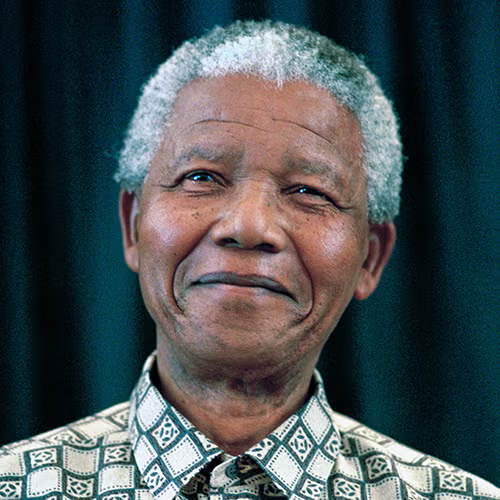The representation of Nigerian culture in music blends traditional sounds with modern styles, reflecting the country’s rich heritage.
Nigerian Music serves as a powerful lens through which the rich tapestry of the nation’s culture is vividly displayed.
When it comes to music, there is no denying that Nigerian culture has made a significant impact on the global stage.
From the pulsating rhythms of Afrobeats to the soulful melodies of Highlife.
Nigerian artists encapsulate the essence of their heritage, making it accessible to a global audience.
This representation is not merely an artistic endeavor, it is a celebration of identity, history, and resilience.
Firstly, the diversity of Nigeria’s ethnic groups is reflected in its music. With over 250 ethnicities, each group brings its unique sounds, instruments, and stories to the forefront.
The Representation Of Nigerian Culture In Music
For instance, the Yoruba people contribute their traditional drumming and vocal styles, while the Igbo community infuses their music with vibrant melodies and dance.
This blend creates a rich musical landscape that resonates with listeners both locally and internationally.
Consequently, artists like Burna Boy and Wizkid have successfully fused traditional elements with contemporary genres, showcasing the beauty of Nigerian culture to the world.
Moreover, music serves as a vehicle for storytelling, artists like Fela Kuti, the pioneer of Afrobeat, used his music to critique political corruption and social injustice.
His bold lyrics and infectious rhythms galvanized a generation, making music a tool for activism.
His legacy continues to inspire contemporary musicians who tackle themes such as poverty, inequality and youth empowerment.
Artists like Simi, Adekunle Gold and Omah Lay address personal and societal struggles in their lyrics, encouraging listeners to reflect on their circumstances.
The Representation Of Nigerian Culture In Music
This engagement with pressing issues not only enriches the music but also fosters a sense of community and awareness among fans.
In addition to social commentary, Nigerian music celebrates cultural traditions and values.
More than just entertainment, Nigerian music is a reflection of the country’s unique culture and heritage.
Many songs incorporate proverbs, folklore and historical references, allowing listeners to connect with their roots.
For instance, the use of indigenous languages in lyrics not only preserves these languages but also promotes cultural pride.
As a result, younger generations are encouraged to embrace their heritage, ensuring that the richness of Nigerian culture continues to thrive.
Through music, Nigeria preserves its rich heritage and oral traditions.
Many songs are passed down through generations, keeping alive the stories, proverbs, and wisdom of ancestors.
Traditional instruments such as the talking drum, shekere, and udu are integral to this preservation as they carry unique sounds and techniques that are emblematic of specific cultures.
The Representation Of Nigerian Culture In Music
By incorporating these elements into modern music, artists help to ensure that traditional practices are not lost in the face of globalization.
This cultural preservation is vital in a rapidly globalizing world, where the risk of cultural homogenization looms large.
Transitioning from storytelling, the role of language in Nigerian music cannot be overlooked.
Many artists incorporate indigenous languages into their lyrics, creating a sense of authenticity and connection.
This practice not only preserves local dialects but also fosters a sense of pride among listeners.
For instance, songs that feature Pidgin English, a widely spoken creole language, resonate with a broad audience, bridging gaps between different ethnic groups.
As a result, music becomes a unifying force, celebrating linguistic diversity while promoting cultural understanding.
The Representation Of Nigerian Culture In Music
Furthermore, the global rise of Nigeria music has led to increased collaboration with international artists, further amplifying its reach.
With the rise of digital media, Nigeria music has gained more prominent international presence than ever before.
Platforms like Spotify and Apple music have made it easier for artists to share their work with international audiences.
Social media platforms have become a powerful tool for showcasing Nigerian music and culture to the world.
This has given artists the opportunity to showcase their music globally.
Genres like Afrobeat gained immense popularity beyond Nigeria’s borders.
Collaborations between Nigerian musicians and global stars, such as Beyonce and Drake, have introduced Afrobeats to new audiences.
These partnerships not only elevate Nigerian music but also create a cultural exchange that enriches both parties.
The Representation Of Nigerian Culture In Music
Whatever the perspective may be, it is undeniable that Nigerian music has put the country on the map and has become a source of national pride.
Nigerian music is more than just beats and melodies_ it is life on its own.
In conclusion, the representation of Nigerian culture in music is a complex and ongoing discussion.
While there are valid concerns about the dilution and misrepresentation of cultural elements in music, there are also examples of successful authentic representation.
As listeners, it is important to support and encourage artists who stay true to their roots and use music as a platform to showcase Nigeria culture in all its beauty and diversity.
Nigerian music has the power to not only entertain but also educate and preserve the country’s rich heritage for generations to come.
So, the next time you listen to a catchy Nigeria tune, remember that it is not only about the beat, but also about preserving the rich and diverse culture of this beautiful country.
Let us continue to celebrate and appreciate Nigerian music as a reflection of its culture.
The Representation Of Nigerian Culture In Music





















































































